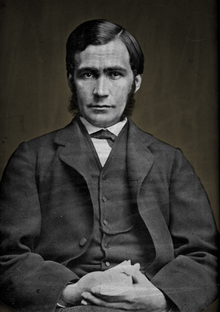The Liberalism portal
Liberalism is a political and moral philosophy based on the rights of the individual, liberty, consent of the governed, political equality, right to private property and equality before the law. Liberals espouse various and often mutually warring views depending on their understanding of these principles but generally support private property, market economies, individual rights (including civil rights and human rights), liberal democracy, secularism, rule of law, economic and political freedom, freedom of speech, freedom of the press, freedom of assembly, and freedom of religion, constitutional government and privacy rights. Liberalism is frequently cited as the dominant ideology of modern history.
Liberalism became a distinct movement in the Age of Enlightenment, gaining popularity among Western philosophers and economists. Liberalism sought to replace the norms of hereditary privilege, state religion, absolute monarchy, the divine right of kings and traditional conservatism with representative democracy, rule of law, and equality under the law. Liberals also ended mercantilist policies, royal monopolies, and other trade barriers, instead promoting free trade and marketization. Philosopher John Locke is often credited with founding liberalism as a distinct tradition based on the social contract, arguing that each man has a natural right to life, liberty and property, and governments must not violate these rights. While the British liberal tradition has emphasized expanding democracy, French liberalism has emphasized rejecting authoritarianism and is linked to nation-building. (Full article...)
Selected article -
The Progressive Era (1896–1917) was a period in the United States during the early 20th century of widespread social activism and political reform across the country. Progressives sought to address the problems caused by rapid industrialization, urbanization, immigration, and political corruption as well as the enormous concentration of industrial ownership in monopolies. Progressive reformers were alarmed by the spread of slums, poverty, and the exploitation of labor. Multiple overlapping progressive movements fought perceived social, political, and economic ills by advancing democracy, scientific methods, and professionalism; regulating business; protecting the natural environment; and improving working and living conditions of the urban poor.
Corrupt and undemocratic political machines and their bosses were a major target of Progressive reformers. To revitalize democracy, progressives established direct primary elections, direct election of senators (rather than by state legislatures), initiative and referendum, and women's suffrage which was promoted to advance democracy and bring the presumed moral influence of women into politics. For many progressives, prohibition of alcoholic beverages was key to eliminating corruption in politics as well as improving social conditions. (Full article...)Selected biography -

List of selected biographies
|
|---|
Selected quote
General images
Subcategories
Related portals
WikiProjects
Topics
Recognized content
Associated Wikimedia
The following Wikimedia Foundation sister projects provide more on this subject:
-
Commons
Free media repository -
Wikibooks
Free textbooks and manuals -
Wikidata
Free knowledge base -
Wikinews
Free-content news -
Wikiquote
Collection of quotations -
Wikisource
Free-content library -
Wikiversity
Free learning tools -
Wiktionary
Dictionary and thesaurus


























































